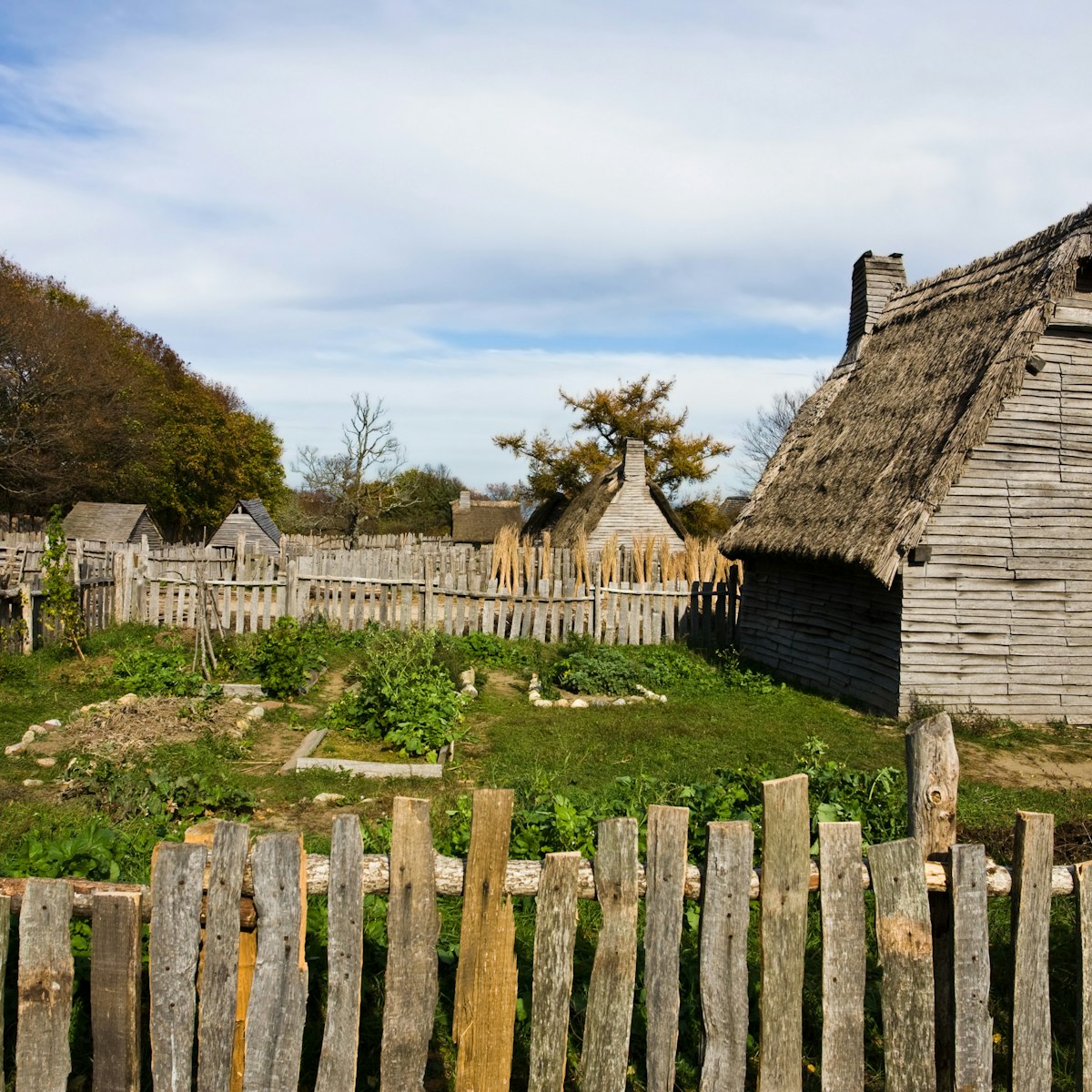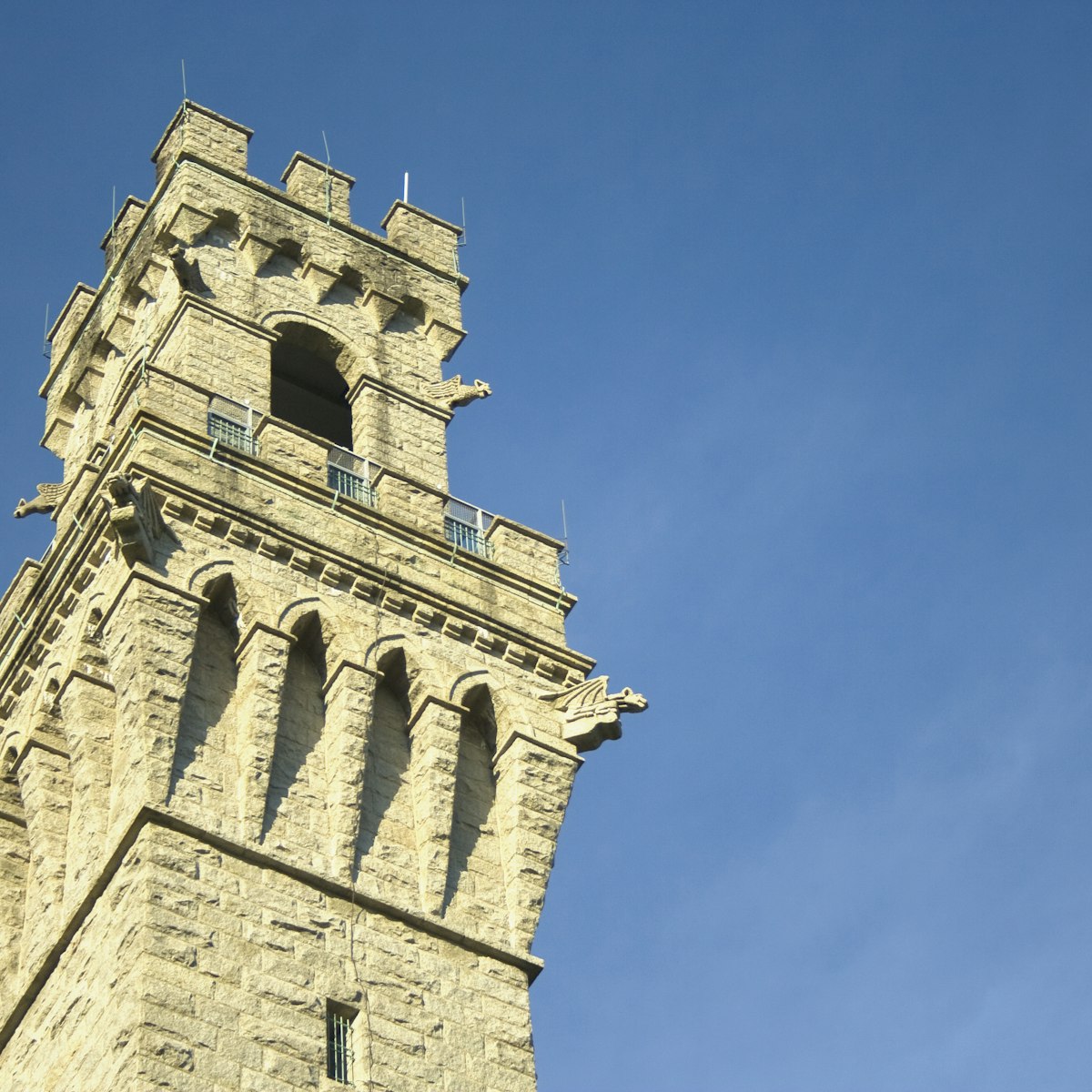Thousands of visitors come each year to look at this weathered granite ball and consider what it was like for the Pilgrims who stepped ashore on a foreign land in the fall of 1620. In firsthand accounts of the fledgling colony there's no mention of a granite rock, but the story gained popularity during colonial times.
In 1774, 20 yoke of oxen were harnessed to the rock to move it – splitting it in the process. Half of the cloven boulder went on display in Pilgrim Hall from 1834 to 1867. The sea and wind lashed at the other half, and innumerable small pieces were chipped off and carried away by souvenir hunters over the centuries. By the 20th century the rock was an endangered artifact, and steps were taken to protect it. In 1921 the reunited halves were sheltered in the present granite enclosure. In 1989 the rock was repaired and strengthened to withstand weathering. And so it stands today, relatively small, broken and mended, an enduring symbol of the quest for religious freedom.



